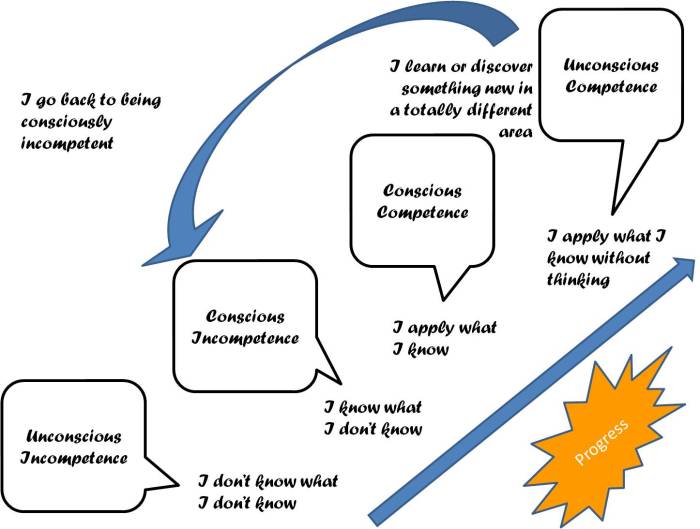Realtors must be competent in a wide range of areas to succeed in the competitive real estate market. From understanding local market trends to adhering to legal and ethical obligations, realtors play a vital role in guiding clients through complex transactions.
This article explores the essential competencies that every realtor must possess to provide exceptional service and achieve success in the industry.
Effective communication, negotiation skills, and proficiency in marketing and technology are crucial for realtors to connect with clients, build strong relationships, and stay ahead of the competition. Financial management, industry knowledge, and best practices also empower realtors to make informed decisions and navigate the ever-changing real estate landscape.
Knowledge of Real Estate Market

In the competitive real estate industry, realtors must possess a comprehensive understanding of the local market trends and demographics. This knowledge empowers them to make informed decisions, tailor their strategies, and effectively serve their clients.
By analyzing market data, realtors can identify emerging trends, predict future market conditions, and gain insights into buyer and seller behavior. This information enables them to adjust their pricing strategies, marketing campaigns, and negotiation tactics to align with market dynamics.
Examples of Successful Realtors
- Realtor A:Leveraged market data to identify a growing demand for luxury properties in a specific neighborhood. By focusing on this niche market, they secured exclusive listings and achieved exceptional sales.
- Realtor B:Used demographic data to target first-time homebuyers in an up-and-coming area. Their targeted marketing campaigns resulted in a significant increase in buyer leads and successful closings.
- Realtor C:Analyzed market trends to predict a downturn in the market. By advising their clients to sell before the decline, they protected their investments and earned a reputation for foresight.
Legal and Ethical Compliance

Realtors must operate within the boundaries of the law and adhere to ethical standards to maintain the integrity of the real estate profession. Understanding and complying with these obligations is crucial for realtors to avoid legal repercussions and maintain a positive reputation.
Real estate laws and regulations vary by jurisdiction, so it is essential for realtors to stay updated on the specific laws applicable to their area of practice. These laws govern various aspects of real estate transactions, including property ownership, contracts, disclosures, and agency relationships.
Legal Obligations
- Disclosure Requirements:Realtors must disclose any material facts that may affect the value or desirability of a property to potential buyers and sellers.
- Fiduciary Duties:Realtors have a fiduciary duty to act in the best interests of their clients, which includes providing competent advice, maintaining confidentiality, and avoiding conflicts of interest.
- Fair Housing Laws:Realtors are prohibited from discriminating against individuals based on protected characteristics such as race, religion, or disability.
Ethical Standards
- Code of Ethics:The National Association of Realtors (NAR) has established a Code of Ethics that Artikels the ethical principles that all members must follow.
- Professionalism:Realtors are expected to conduct themselves professionally, maintain high standards of integrity, and treat clients and colleagues with respect.
- Transparency:Realtors should be transparent in their dealings with clients and provide clear and accurate information about properties and transactions.
Case Studies
Case studies can provide valuable lessons about the consequences of violating legal or ethical obligations. For example, in one case, a realtor was found liable for failing to disclose a known defect in a property, resulting in a significant financial loss for the buyer.
Another case involved a realtor who breached their fiduciary duty by secretly representing both the buyer and seller in the same transaction, leading to a conflict of interest and a lawsuit.
These cases highlight the importance of adhering to legal and ethical standards in the real estate profession and the potential consequences of failing to do so.
Communication and Negotiation Skills
Communication and negotiation are indispensable skills for realtors, enabling them to build rapport with clients, facilitate smooth transactions, and secure favorable outcomes.
Effective Communication
- Active Listening:Genuinely listen to clients’ needs, concerns, and aspirations to understand their perspectives.
- Clear and Concise Language:Communicate effectively using jargon-free language, ensuring clarity and comprehension.
- Empathy and Respect:Show empathy and respect for clients’ backgrounds, values, and decision-making processes.
Negotiation Techniques
Effective negotiation requires a combination of preparation, strategy, and empathy.
- Preparation:Gather all necessary information, research comparable properties, and anticipate potential negotiation points.
- Collaboration:Approach negotiations with a collaborative mindset, aiming to find mutually acceptable solutions.
- Negotiation Styles:Understand different negotiation styles (e.g., competitive, collaborative, compromising) and adapt accordingly.
- Concessions:Be willing to make concessions while maintaining a strong position on key issues.
- Win-Win Outcomes:Aim for negotiations that result in favorable outcomes for both parties.
Marketing and Technology Proficiency

In today’s digital age, marketing and technology have become indispensable tools for realtors. With the vast majority of homebuyers starting their search online, it’s crucial for realtors to have a strong online presence and leverage technology to reach potential clients.
Effective marketing channels for realtors include social media, search engine optimization (), email marketing, and content marketing. Social media allows realtors to connect with potential clients, share valuable information, and build relationships. helps realtors improve their visibility in search engine results pages (SERPs), making it easier for potential clients to find their listings.
Email marketing enables realtors to nurture leads, provide updates on new listings, and promote their services. Content marketing, such as creating blog posts and videos, helps realtors establish themselves as experts in their field and attract potential clients who are looking for information about real estate.
Leveraging Technology
Technology can also enhance the efficiency and reach of realtors. Customer relationship management (CRM) software helps realtors manage their contacts, track leads, and automate marketing tasks. Virtual tours and 3D imaging allow potential clients to view properties remotely, saving time and effort.
Online scheduling tools make it easy for potential clients to book appointments with realtors. By leveraging technology, realtors can streamline their operations, reach a wider audience, and provide a better experience for their clients.
Customer Relationship Management: Realtors Must Be Competent In

Establishing and fostering strong relationships with clients is crucial in the real estate industry. By prioritizing customer satisfaction, realtors can build a loyal clientele, generate repeat business, and enhance their reputation.
Effective customer relationship management (CRM) involves personalized communication, proactive follow-ups, and tailored services that cater to the specific needs of each client. It requires understanding their goals, preferences, and concerns, and building trust through transparency and open communication.
Strategies for Effective Customer Relationship Management
- Active listening and communication:Engage in meaningful conversations, actively listen to clients’ needs, and respond promptly to inquiries.
- Regular follow-ups:Stay in touch with clients throughout the transaction process and beyond, providing updates, answering questions, and offering support.
- Personalized services:Tailor services to meet individual client preferences, such as providing customized property recommendations or negotiating favorable terms.
- Building trust:Maintain transparency, honesty, and integrity in all interactions, demonstrating a genuine commitment to clients’ best interests.
- Leveraging technology:Utilize CRM tools and software to manage client data, track interactions, and automate follow-ups.
Case Studies of Realtors Excelling in Customer Service, Realtors must be competent in
Realtor Jane Doe consistently exceeds client expectations by going above and beyond in providing personalized services. She meticulously researches properties that align with her clients’ unique requirements, and her exceptional negotiation skills have secured favorable deals for numerous buyers and sellers.
Realtors must be competent in various aspects of real estate, including negotiation, marketing, and legal matters. They should also stay informed about industry trends and legal developments, such as whether workers’ compensation can deny surgery . This knowledge enables them to provide comprehensive guidance to their clients and navigate complex transactions smoothly.
Realtor John Smith has built a strong reputation for his proactive communication and unwavering support. He proactively updates clients on market trends, property showings, and any potential issues that may arise during the transaction process. His dedication to client satisfaction has resulted in a loyal clientele and numerous positive testimonials.
Financial Management

Financial management is a crucial aspect of real estate transactions, encompassing various responsibilities for realtors. Understanding the financial aspects, planning, budgeting, expense management, and profitability maximization are essential for success in this field.
Financial Planning and Budgeting
Effective financial planning involves forecasting income, expenses, and cash flow. Realtors should create detailed budgets outlining their income sources, operating expenses (e.g., marketing, commissions, insurance), and personal expenses. Accurate budgeting helps track financial performance, identify potential risks, and make informed decisions.
Expense Management
Managing expenses is vital for profitability. Realtors should implement strategies to minimize costs while maintaining quality services. This includes negotiating favorable commission rates, seeking cost-effective marketing solutions, and optimizing office expenses. Regular expense reviews and adjustments can help reduce unnecessary expenditures and increase profitability.
Profitability Maximization
Maximizing profitability requires a combination of effective financial management practices. By optimizing income sources, controlling expenses, and implementing strategic planning, realtors can enhance their profitability. This may involve exploring additional income streams, such as property management or consulting services, and leveraging technology to streamline operations and reduce costs.
Industry Trends and Best Practices

Staying abreast of industry trends and best practices is paramount for realtors to remain competitive and deliver exceptional client experiences. Emerging technologies, innovative approaches, and shifting market dynamics constantly reshape the real estate landscape, and realtors who embrace these advancements can gain a significant edge.
Emerging Technologies
Technological advancements are transforming the real estate industry, providing realtors with powerful tools to enhance their services. Virtual reality (VR) and augmented reality (AR) offer immersive experiences for potential buyers, allowing them to virtually tour properties from anywhere. Artificial intelligence (AI) and machine learning algorithms streamline tasks, automate processes, and provide data-driven insights to support informed decision-making.
Innovative Approaches
Realtors are adopting innovative approaches to meet the evolving needs of clients. Collaborative platforms facilitate seamless communication and information sharing among realtors, clients, and other stakeholders. Data analytics empowers realtors to understand market trends, identify opportunities, and tailor their services to specific client segments.
Personalized marketing campaigns leverage targeted messaging and segmentation to connect with potential buyers and sellers effectively.
Best Practices
Successful realtors consistently adhere to best practices that enhance their credibility and reputation. Ethical conduct, transparency, and open communication foster trust and build strong client relationships. Continuous education ensures realtors stay up-to-date with industry knowledge and legal requirements. Market research and due diligence provide valuable insights for informed decision-making and successful transactions.
Answers to Common Questions
What are the key legal obligations that realtors must comply with?
Realtors must adhere to various legal obligations, including disclosure requirements, fair housing laws, and anti-discrimination regulations.
How can realtors leverage technology to enhance their efficiency?
Realtors can use technology to streamline tasks such as lead generation, property management, and marketing campaigns.
What are some strategies for effective communication with clients?
Realtors should prioritize active listening, empathy, and clear communication channels to build strong relationships with clients.